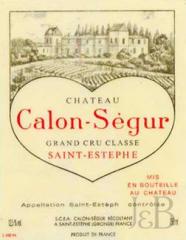Heart of Glass
POSTED ON 29/05/2009Since our politicians have shown themselves to have all the moral backbone of a smack of jellyfish, it leaves something of a bitter taste in the mouth to have to listen to the nanny state’s killjoy cant about alcohol. Drinking wine is bad, so the mantra goes, because it causes cyrrhosis, it’s anti-social and brings death and destruction on the roads. Well, yes, it’s obvious to anyone with quarter of a brain that excessive drinking, whether of wine, beer or spirits, is harmful. What about the message that as part of a balanced diet, wine enjoyed in moderation is one of life’s greatest pleasures and most civilising influences? Hopefully our readers have the nous not just to understand that, but to put it into practice.
 Heart...
Heart...
As we know from numerous scientific studies, moderate red wine drinkers enjoy a lowered risk of one of our greatest killers, heart disease, than either teetotallers or excessive drinkers. How does red wine help prevent heart disease? When Professor Roger Corder of Queen Mary’s School of Medicine observed that the French have comparatively less heart disease than the rest of Europe even though they regularly consume fatty food, he was puzzled. Taking his cue from studies showing that the polyphenols in red wine act to prevent blood clots and the furring of the arteries, the focus of Dr.Corder’s research was to find out which of the many polyphenols might prevent heart disease and which wines contained it.
 ...of glass
...of glass
All the red wines Dr. Corder tested had some beneficial effect while whites and rosés had none. This led to the conclusion that the relevant polyphenols came from the grape seed or skin. He concluded that polyphenols such as resveratrol were not responsible for the beneficial effect. Instead, his research identified procyanadins as the most active ingredient in red wine that keeps the blood vessels clear and prevents heart disease. Procyanidins are chemicals that block the production of a protein that constricts blood vessels, thus reducing the risk of blockages and heart attacks. Abundant amounts are also contained in dark chocolate, apples, cranberries and certain other fruits, nuts and spices.
 ©adoptionclubhouse.org
©adoptionclubhouse.org
The French paradox led him to France, where he found life expectancy in the South-West of France, the Gers especially, is significantly higher than in the rest of France. He discovered that tannic wines from the South-West, in particular traditional styles based on the tannat grape such as Madiran and Saint Mont, have the highest procyanidin content of any wines in the world. It’s not just the grapes but also the wine-making process and altitude which are important factors in a healthy polyphenol count. Other grapes such as cabernet sauvignon contain good procyanidin potential too but the riper the grapes and the higher the alcohol, the lower the levels of protective procyanadins.
Dr. Corder is not an apostle for red wine as a panacea for all ills nor is he aiming to encourage people to drink more. He does however tell us in The Wine Diet (Sphere, £9.99) how red wine, and especially red wines from South West France with their higher procyanadin content, can have significant benefits for a healthy heart and long-term wellbeing when consumed as a natural part of a healthy and balanced diet. Indeed you might almost call it a no-brainer. Next week, I look at the wines of South West France and some of the reds with Dr. Corder’s highest heart ratings. Anthonyrosewine.com
Something For the Weekend 30 May 2009
Under a Fiver
2008 Vineyard X Garnacha
With its nattily re-designed label and slightly toned down alcohol, this peppery, approachably gluggy, cherryish red from northern Spain’s Campo de Borja is one of the best value barbecue-friendly bargains of the summer. £5.49, or buy 3 = £3.64, Wine Rack
Under a Tenner
2007 Laurent Miquel Nord Sud Viognier
A consistent star of the Vins de Pays Top 100, this is one of the Languedoc’s greatest viogniers, a beautifully crafted, peachy example of the northern Rhône variety with a refreshingly juicy acidity. £7.99 - £8.04, Majestic, Tesco.
Splash Out
2006 Margaux, La Petite Echoppe
Lucien Lurton’s classic, accomplished four-way Margaux blend of three-fifths cabernet sauvignon plus merlot, cabernet franc and petit verdot, is bright and modern, a discreet layer of vanilla oak enhancing the succulent dark berry and cassis fruit. £14.99, Marks & Spencer.

